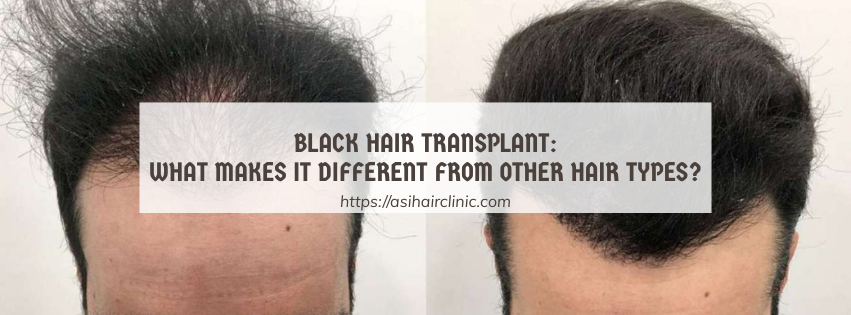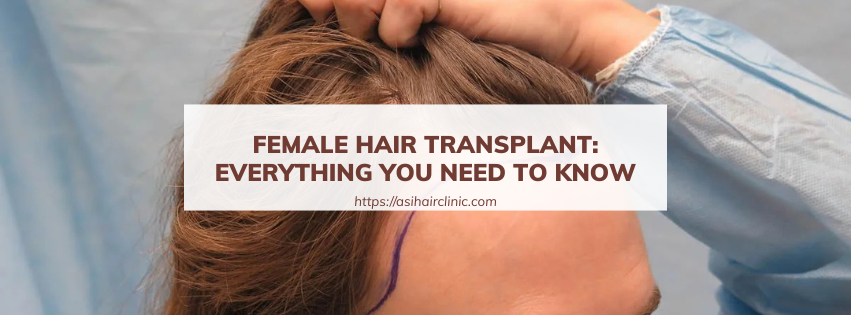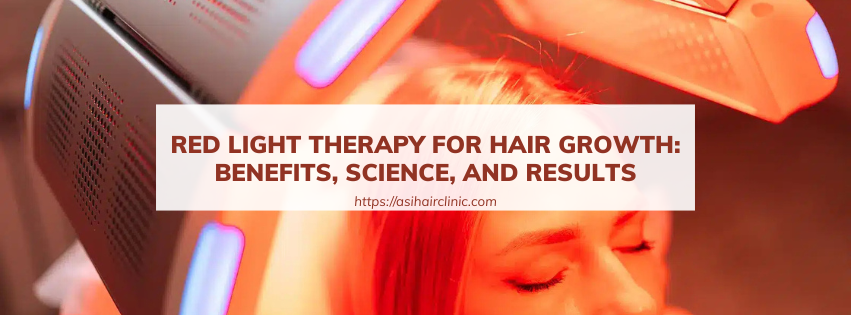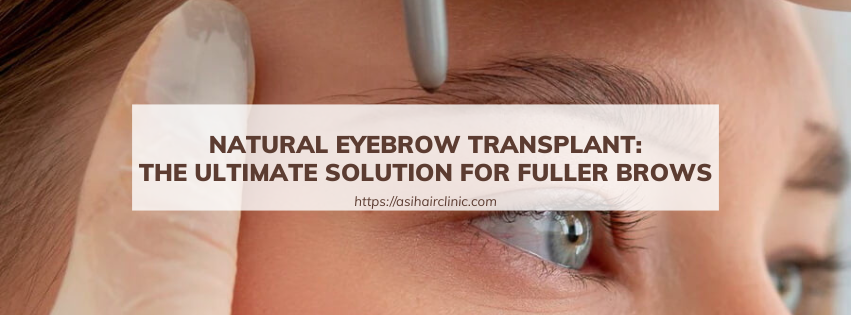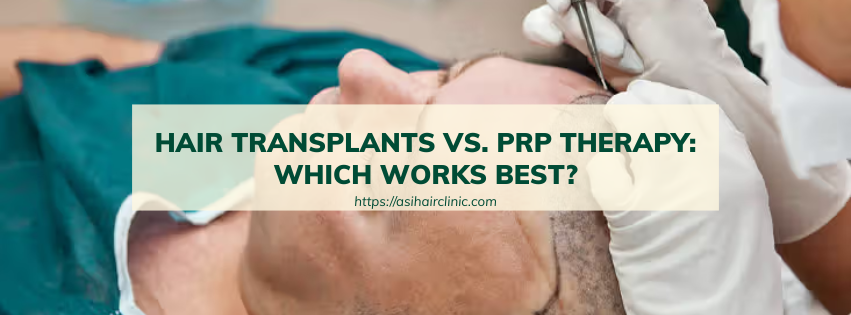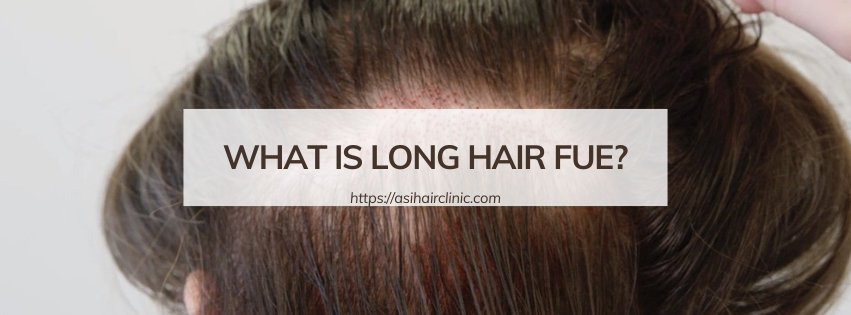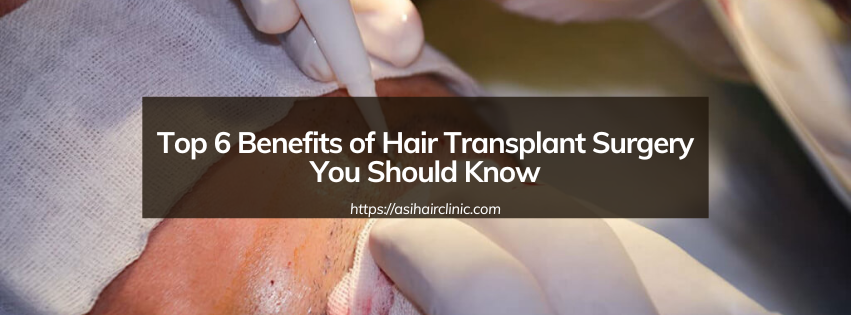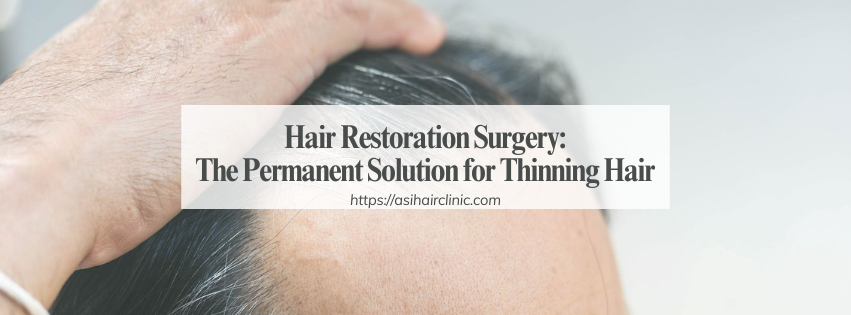The Link Between Stress and Hair Loss: What You Need to Know
The link between stress and hair loss is a complex and multifaceted relationship that many individuals experience. As life becomes increasingly fast-paced and demanding, stress levels soar, and with them, the potential for hair loss. Understanding this connection requires a deep dive into the various ways stress manifests in our bodies, its impact on overall health, and specifically how it contributes to hair thinning or shedding. In this article, we will explore the mechanisms behind this link, delve into different types of hair loss associated with stress, and offer insights into coping strategies and treatment options.
1. Understanding Stress and Its Physical Impact
Stress is not just a mental or emotional state; it has profound physical effects that can influence various body systems. This section will elucidate the nature of stress, its causes, and how it can trigger biological responses affecting hair health.
1.1. Defining Stress and Its Types
Stress can be categorized into two main types: acute stress and chronic stress.
Acute stress is short-term and often arises from specific events such as job interviews, exams, or sudden emergencies. While it may cause temporary discomfort, acute stress usually dissipates once the triggering event concludes.
Chronic stress, on the other hand, is ongoing and can stem from long-term issues like financial difficulties, health concerns, or persistent relationship problems. It can lead to serious health issues if left unaddressed, including anxiety disorders, depression, and even cardiovascular diseases.
In terms of hair health, chronic stress is particularly concerning. Research suggests that prolonged exposure to stress can disrupt the hair growth cycle, leading to conditions like telogen effluvium, where hair prematurely enters the shedding phase.
1.2. Biological Responses to Stress
When faced with stress, our bodies enter a "fight-or-flight" mode. This response triggers the release of hormones, primarily cortisol and adrenaline, which prepare the body to deal with threats. However, prolonged elevation of these hormones can wreak havoc on various bodily functions.
Cortisol, often referred to as the stress hormone, can have a detrimental effect on hair follicles. High levels of cortisol can reduce blood flow to the scalp, impairing nutrient delivery to hair roots and ultimately leading to hair weakening and loss. Additionally, the imbalance of other hormones due to chronic stress can result in the alteration of the normal hair growth cycle, exacerbating hair loss issues.
1.3. The Psychological Dimension of Stress
Understanding the psychological aspect of stress is crucial in unraveling its connection to hair loss. Stress can lead to behaviors such as poor eating habits, lack of sleep, and neglect of personal care routines-all factors that can further contribute to hair health deterioration.
Moreover, stress can manifest in physical symptoms beyond hair loss. People may develop skin issues, weight fluctuations, and muscle tension, indicating that stress affects the entire body. Recognizing the signs of stress is vital for taking proactive measures to mitigate its impact, including seeking psychological support, practicing mindfulness, or engaging in therapy.
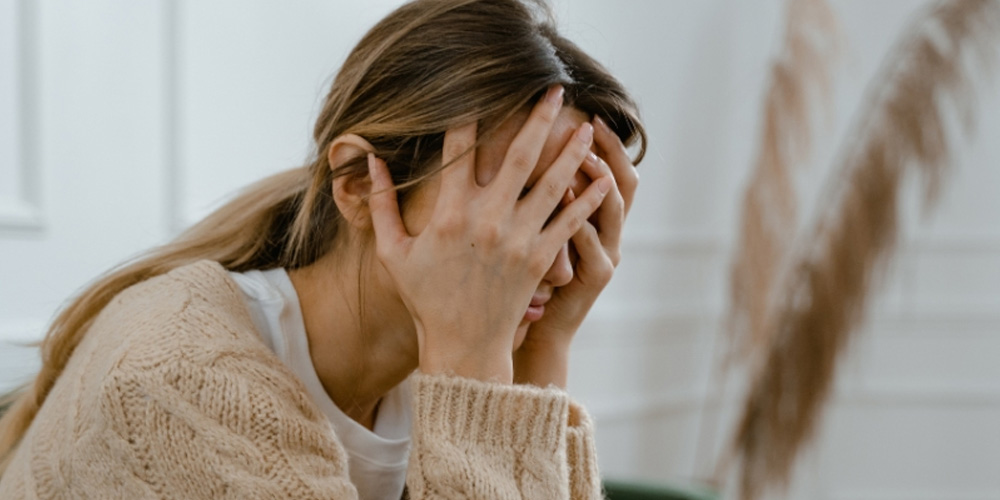
2. The Mechanism of Hair Loss Due to Stress
The Link Between Stress and Hair Loss is rooted in complex biological mechanisms. In this section, we will explore the direct effects of stress on hair follicles and the subsequent conditions that can arise.
2.1. The Hair Growth Cycle
To understand how stress affects hair loss, it's essential to first grasp the hair growth cycle, which consists of three main phases: anagen (growth), catagen (transitional), and telogen (resting).
During the anagen phase, hair grows actively for several years, while the catagen phase marks the end of growth. Finally, in the telogen phase, the hair lies dormant before eventually falling out. Under normal circumstances, about 85% to 90% of hair follicles are in the anagen phase at any given time.
Stress can disrupt this cycle, particularly by increasing the number of hair follicles entering the telogen phase prematurely. This disruption can lead to noticeable hair thinning after a stressful event, often occurring several weeks to months later, creating a delayed reaction that can be alarming for those affected.
2.2. Telogen Effluvium Explained
Telogen effluvium is one of the most common forms of stress-related hair loss. It occurs when a significant number of hair follicles prematurely enter the telogen phase, resulting in increased shedding.
This condition can be triggered by various stressors, including major life changes, emotional trauma, surgery, or severe illness. The onset of telogen effluvium typically occurs within a few months following the stressor, which can make it challenging for individuals to connect their hair loss to the underlying cause.
While telogen effluvium is usually temporary, it can take several months for hair to regrow fully. Individuals experiencing this condition should seek guidance from healthcare professionals to assess underlying factors and establish effective management strategies.
2.3. Alopecia Areata: The Autoimmune Connection
Stress doesn't just induce telogen effluvium; it can also exacerbate autoimmune conditions such as alopecia areata, characterized by sudden hair loss in patches. This condition occurs when the immune system mistakenly attacks hair follicles, resulting in unpredictable hair loss patterns.
Research indicates that stress can act as a triggering factor for alopecia areata, particularly in individuals who may be genetically predisposed to the condition. Evidence of stress contributing to flare-ups underscores the importance of holistic approaches to manage both hair health and mental well-being.
Individuals suffering from alopecia areata may benefit from interventions like corticosteroid injections, topical treatments, or alternative therapies such as acupuncture, which can help address both the physical and psychological components related to the condition.
3. Coping Strategies to Manage Stress and Hair Loss
Given the profound impact of stress on hair health, developing effective coping strategies is essential. This section will outline practical methods for managing stress, thereby minimizing its negative effects on hair loss.
3.1. Mindfulness and Stress Reduction Techniques
Mindfulness practices, such as meditation and yoga, can be incredibly effective in reducing stress levels. These techniques encourage individuals to focus on the present moment, cultivating a sense of calmness and clarity.
Meditation involves finding a quiet space, sitting comfortably, and focusing on breathing patterns. This practice allows the mind to pause and alleviate anxious thoughts that can contribute to stress. Practicing mindfulness meditation regularly can also improve overall mental health, making it a valuable tool for individuals facing stress-induced hair loss.
Yoga combines physical movement with breath control and meditation. A study published in the Journal of Clinical Psychology found that participants who practiced yoga experienced significant reductions in stress and anxiety levels. By incorporating yoga into daily routines, individuals can improve flexibility and strength while also promoting relaxation.
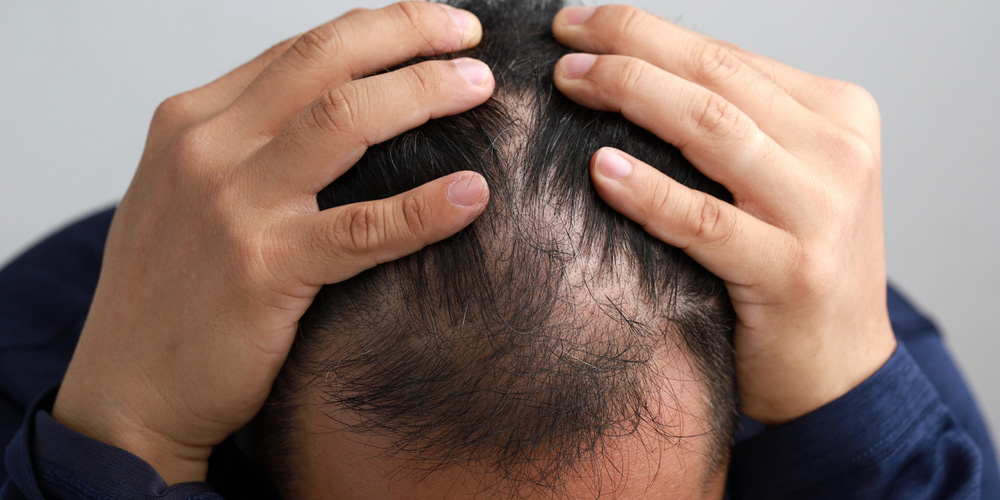
3.2. Nutrition and Lifestyle Adjustments
Eating a balanced diet rich in vitamins and minerals supports overall health and well-being, significantly impacting hair health. Nutrients such as biotin, zinc, iron, and omega-3 fatty acids play critical roles in maintaining healthy hair growth.
Stress can lead to poor dietary choices, further exacerbating hair loss. Individuals should prioritize whole foods, including fruits, vegetables, lean proteins, and healthy fats. Staying hydrated is equally important; drinking enough water helps maintain optimal bodily functions and supports healthy hair follicles.
Additionally, regular exercise plays a crucial role in mitigating stress. Engaging in physical activity releases endorphins-feel-good hormones-that naturally elevate mood and reduce anxiety. Finding enjoyable exercises, whether through walking, dancing, or swimming, can transform a mundane routine into an empowering ritual that fosters resilience against stress.
3.3. Seeking Professional Help
It's essential to recognize when professional assistance may be necessary for managing stress. Therapists, counselors, and psychologists can provide coping strategies tailored to individual needs, helping individuals develop resilience against stressors.
In some cases, medical professionals may recommend medication to manage anxiety or depression, which could also alleviate stress-induced hair loss. Consulting with dermatologists or trichologists specializing in hair health can offer further insights and targeted treatment options to address hair loss directly.
Support groups can also be beneficial as they allow individuals to share experiences and coping strategies with others facing similar challenges. Forming connections with like-minded individuals creates a sense of community and understanding, fostering healing through shared experiences.
4. Treatment Options for Hair Loss Due to Stress
Addressing hair loss linked to stress requires comprehensive treatment plans that encompass both physiological and psychological aspects. This section will explore various treatment options available for individuals experiencing stress-related hair loss.
4.1. Topical Treatments and Medications
Topical treatments containing minoxidil (Rogaine) can stimulate hair growth and prevent further loss. Minoxidil is FDA-approved for treating certain types of hair loss and works by increasing blood flow to hair follicles. Patients typically apply the solution directly to their scalp and may see results after a few months of consistent use.
In addition to minoxidil, oral medications such as finasteride can benefit some individuals. Finasteride blocks dihydrotestosterone (DHT), a hormone implicated in androgenetic alopecia, common among men and women. However, it's essential to consult a healthcare provider before starting any medication, as side effects and contraindications exist.
4.2. Alternative Therapies
Many individuals exploring natural treatments for stress-related hair loss may consider alternative therapies. Acupuncture has gained popularity as a method for improving hair health by stimulating circulation in the scalp. Some practitioners suggest that acupuncture can help balance energy levels, potentially alleviating the stress that contributes to hair loss.
Essential oils, such as rosemary, lavender, and peppermint, are believed to promote hair growth and improve scalp health when used in conjunction with scalp massages. Massaging the scalp encourages blood flow and provides a relaxing experience that can relieve stress. Using high-quality essential oils combined with carrier oils can create a nourishing treatment for both the scalp and hair.
4.3. Lifestyle Changes for Long-Term Management
Incorporating lifestyle changes that enhance overall well-being can profoundly affect hair health over time. Establishing a consistent sleep schedule, prioritizing quality sleep, and managing work-life balance can help reduce stress and its impact on hair loss.
Creating a self-care routine that incorporates activities that bring joy and relaxation is vital. Whether indulging in hobbies, spending time with loved ones, or exploring new interests, finding balance in daily life promotes mental clarity and emotional resilience.
Engagement in community activities, volunteering, or participating in local events can also foster social connections and decrease feelings of isolation that often accompany stress. Building a network of support and belonging serves as a protective factor against the adverse effects of stress on both mental and physical health.
Conclusion
The link between stress and hair loss is an intricate relationship influenced by various biological, psychological, and environmental factors. Understanding the mechanisms behind this connection enables individuals to adopt effective coping strategies, embrace holistic treatment options, and prioritize self-care. By proactively addressing stress and its repercussions, individuals can reclaim their well-being and nurture both their mental health and hair vitality. Whether through mindfulness practices, nutritional adjustments, professional support, or other means, taking action against stress is crucial for promoting a healthier, happier life and preventing hair loss. Prioritize mental well-being, and let your hair shine in its full glory!
LATEST POSTS

